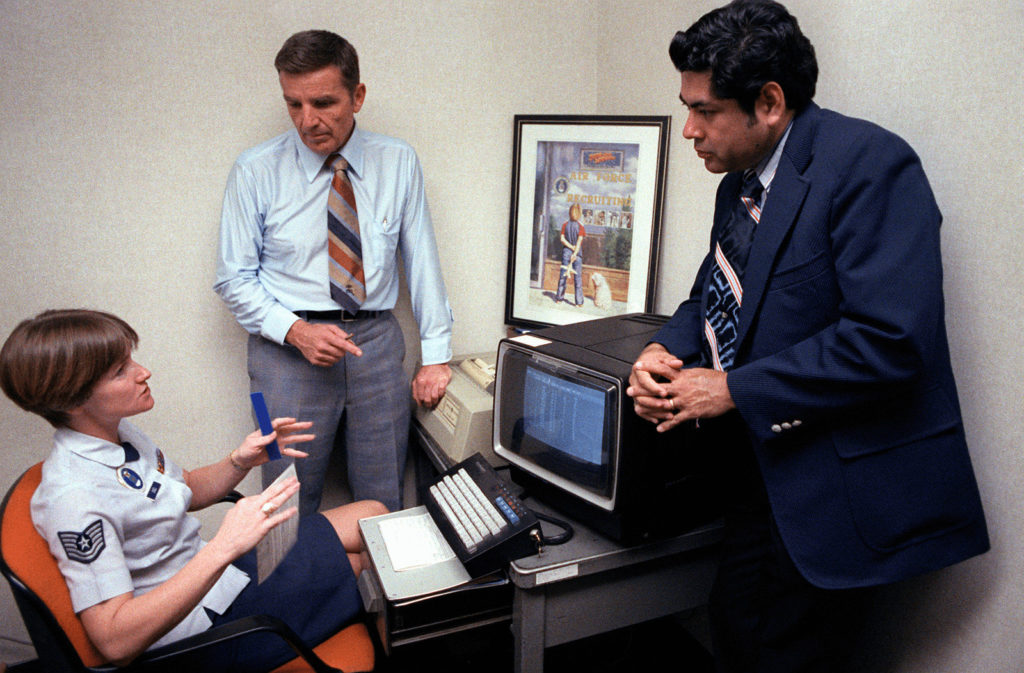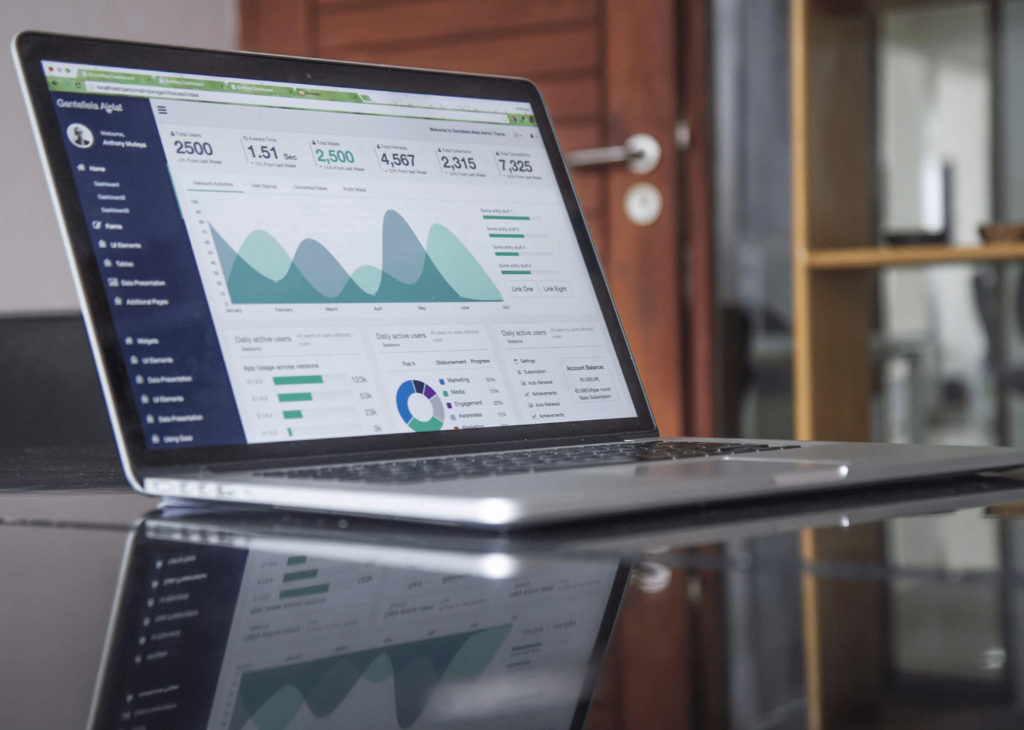In research and academia, statistics are vital. In several industries, technology has become critical to decision-making.
Why are statisticians essential in the IT field? They play a vital role in this process since they gather, interpret, and analyze data.
As a result, demand for this position has increased. Many people consider pursuing it as a future profession.
Look no further than this article! It will recommend detailed steps with essential requirements to become a statistician.
Below are step-by-step instructions that beginners can easily follow. Keep reading to learn more!
1. Take A.P. Math Classes in High School
Statisticians need a solid mathematical foundation, which you should begin acquiring in secondary high school.
It’s best to enroll in the most advanced mathematics course offered at your institution.
In most states, learners are only obliged to finish up to three mathematics credits in secondary high school, including algebra and geometry.

Advanced algebra, precalculus, trigonometry, linear algebra, and A.P. calculus are the most advanced subjects available.
Some colleges can also provide an A.P. statistics program, which is much more directly aligned to the requisite skills of statisticians.
2. Earn a Bachelor’s Degree in a Relevant Discipline
A bachelor’s degree in statistics may benefit you for several entry jobs in the profession.
It’s likewise a requirement for obtaining a Master’s Degree, which is essential for most statistician jobs.
Statistics and Mathematics are typical things of specialization for ambitious statisticians.
Both majors involve a large amount of math coursework and statistical computer courses.
Some statisticians also pursue Computer Science or Economics degrees in addition to statistics and mathematics.
These specialization subjects can help you get ready for a master’s degree in the statistics field.
For instance, an economics degree will give you the core knowledge you’ll need to address complicated challenges through data analysis.
Computer science degrees provide you with the knowledge and abilities to analyze data using complex computational applications.
3. Accept an Internship or Entry-Level Position
Looking for an entry-level position or getting an internship may make it simpler to gain a full-time job as a statistician once you’ve completed your studies.
Advisors at the institution or university can help you find internship opportunities. You can also look for internships on the internet.
Data Scientist, Data Entry Clerk, Statistical Analyst, and Data Modeler are some of the entry-level employment available to individuals with a Bachelor’s Degree.
A Master’s Degree is usually essential for advancement if you want to go beyond these roles.

4. Earn a Master’s Degree in Statistics
The majority of statisticians have earned a master’s degree to work in this field. You can get a Master of Arts or Master of Science degree in this field.
For those seeking a Ph.D. and positions in academia or research, a Master of Science seems to be a basic approach.
You might have to write a thesis as well. In this discipline, most Master’s Degree courses take 12 – 24 months to complete.
There are, nevertheless, expedited courses that last as little as nine months.
You may take courses in different subjects as part of your graduate study to qualify for employment in various industries.
To prepare for a profession as a biostatistician, you could study Biology or Physical Science classes, for instance.
5. Obtain Professional Certification
Obtaining professional certificates is a popular way for statisticians to prove their expertise.
These credentials are optional, but they can help you stand out in a demanding employment market.
The American Statistical Association is the most fundamental professional union for statisticians.
This organization provides three certifications based on experience level, including:
Graduate Statistician
This certification is for fresh statistics master’s degree graduates. It does not require you to complete an exam.
All you have to do is fill out an application with your contact information, resume, and a list of your completed courses and degrees.
Professional Statistician
This certification requires you to have at least five years of experience.
You must additionally include instances of current activities and documentation of your achievement.
Accredited Professional Statistician
Statisticians who prove advanced statistical understanding and expertise receive this certificate.
You must commit to following specific ethical guidelines and continue your professional development.
6. Start Specializing in a Specific Field
Statisticians engage in a wide range of industries. Specialization in a particular field, on the other hand, can make you more outstanding than others vying for a comparable job.
Education, Biology, Finance, Psychology, Health, Geography, Economics, Product Development, and Marketing are common sectors statisticians work in. They also work for the government at all levels.

Concentrating on the profession you work in can help you advance your career and boost your portfolio.
There are various ways to broaden your understanding of diverse industries. You can join a trade school, specific academic courses, or some Master’s Degree programs.
You can easily prepare for Master’s courses in different subjects, including expedited programs lasting one year to finish, because you have previously obtained a Bachelor’s Degree.
7. Pursue a Ph.D. in Statistics
A Ph.D. in Statistics will only be mandatory for people who wish to work as Researchers or Professors. Doctoral programs might take anything from 4 – 5 years to finish.
You must complete a dissertation or thesis to achieve a Ph.D. This final phase could entail conducting novel research.
You’ll undoubtedly require previous teaching qualifications if you want to teach statistics.
During your doctoral studies, consider Assistant Professor roles to get the essential experience.
You may begin to focus on specialist domains of this profession when you take that step of your schooling.
You might decide to concentrate on Operations Research, Market Research, or meteorology.
Essential Skills
Statisticians have a wide range of duties that require soft and hard skills, such as analytical, leadership, and problem-solving skills.
Let’s take a look at these critical skills required of these experts, as shown below:
Analytical Skills
Statisticians must be analytical thinkers who can spot patterns and abnormalities in information and reach conclusions.
They also use their analytical talents to locate the most appropriate software and technologies for their needs.
Communication Skills
A statistician’s job entails more than just data and graphs.
An equally crucial aspect of the work is they can convey their discoveries to decision-makers, either verbally or in writing.
It requires the ability to create successful reports and make excellent presentations.

Problem Solving Skills
These specialists’ significant responsibilities are gathering, evaluating, and analyzing documentation.
They must recognize issues, investigate and explain them, and seek out their primary causes.
The purpose is to come up with and put into action solutions to such issues.
Leadership Skills
Qualified statisticians should know how to analyze data carefully through the eyes of essential executives and stakeholders.
Thinking and acting as a leader may assist statisticians in seeing data points and trends, which can have a significant impact on their businesses.

Who is a Statistician?
Statisticians work with statistical data, gathering, evaluating, analyzing, and reporting it.
They may engage in finance, governance, health, education, forensics, astronomy, sports, transportation, or market research.
They are responsible for the design and management of surveys and experiments and the preliminary collection of data.
They’ll look for patterns to aid individuals in making decisions by processing and analyzing the information in context.
They present their discoveries and recommend the most excellent technique or tactics in specific situations.
These specialists usually work in a team with professionals from other disciplines based on the scale of the business or firm.
They must possess excellent technical and analytical expertise. These professionals also should communicate well and work well with others.
They must also present their ideas to colleagues, upper executives, and clients and provide suggestions.

Salary and Job Outlook
According to the U.S. Bureau of Labor Statistics, statisticians earn an average yearly pay of US$92,270.
In the United States, a statistician earns a median annual salary of US$97626. The highest yearly income of these professionals in this country is US$130,702, according to Glassdoor.
A statistician’s median annual wage in India is Rs. 4,47,205. In India, professionals in this field can earn 19,01,642 rupees per year.
A statistician earns an average of £39,376 annually in London, United Kingdom. The highest yearly pay in the U.K. is £62,219 per year.
According to the BLS, professional demand for statisticians is predicted to boost by 35% between 2019 and 2029. It would create 14,800 additional job openings for a variety of people.
Furthermore, compared to many other professions, it has a considerably greater growth rate.

Types of Statistician Careers
Statisticians may work in a wide range of industries and pursue various careers.
Business analysts, quality analysts, risk analysts, researchers, and software engineers are a few examples.
Jobs in various fields, like business, healthcare, finance, development, government, and market research, may be available.
Below are the most common types of statistician careers to consider:
Business Analyst
Business analysts are responsible for conducting market evaluations, evaluating products, and calculating the firm’s revenue profitability.
They’re in charge of creating and tracking data quality measures and ensuring that company reporting and data requirements are satisfied.
Software Engineer
Software engineers create, analyze, and maintain computer software programs.
Web applications, operating systems, and databases are typical areas of specialization.
You’ll need a solid understanding of computer science principles and engineering and mathematics to work as a software engineer.
Quality Assurance Analyst
A quality assurance analyst develops a strategic plan to enhance corporate operations and boost output.
They provide paperwork that details faults and errors encountered during the manufacturing process.
You will need expertise in writing automated test cases and finding problems to work as a quality assurance analyst.
What Does a Statistician Do?
Based on the sector in which statisticians engage, they do a variety of responsibilities.
Analyzing data to develop company plans, spotting patterns in those statistics, and giving guidance based on the information gathered are among the most typical roles of these specialists.
Collect, Analyze, and Interpret Data
To acquire relevant data, statisticians employ several different tools and procedures.
They then analyze and analyze the results to extract useful information.
Companies can make decisions to strengthen their business depending on the conclusions of these experts.
Identify Trends and Relationships in Data
Data analysis and interpretation are insufficient. Another vital component of the work is further research to uncover trends and linkages that executives may benefit from.
These professionals’ insights on relationships and patterns can help a business gain a competitive advantage.
Assist in Decision Making
Statisticians assist in decision-making by gathering, evaluating, and reporting data and finding patterns and linkages.
They present to the business’s executives and help them make decisions depending on the data they collect.

FAQs
How Hard Is It To Be A Statistician?
If you prepare ahead, being a statistician isn’t tricky. Individuals with training in mathematics or statistics are most suitable for this position.
You will have little trouble obtaining work as a statistician if you take the proper education and develop your skills.
Is Statistics A Good Career?
The short answer is yes!
The U.S. News & World Report claimed that statistics occupations are frequently well-paying, offer high job satisfaction, and provide a work-life balance.
Are Statisticians In High Demand?
Statisticians and Mathematicians’ occupation is expected to expand by 33% between 2020 and 2030, substantially faster than the average.
Over the next ten years, a median of 5,200 jobs in the IT field will be forthcoming.
Can You Be A Statistician Without A Degree?
The sad news is no! These positions require at least a bachelor’s degree in this field or related areas such as computer science or applied math.
The Bottom Line
This article has eventually got to the bottom of your headache question: How to become a statistician?
In general, starting any career is not always easy. The most important thing to success in your career is passion, enthusiasm, determination, and outstanding skills. Try your best, and success will follow you!
If you have further questions, feel free to comment below! Thanks for reading, and see you in the next post!
